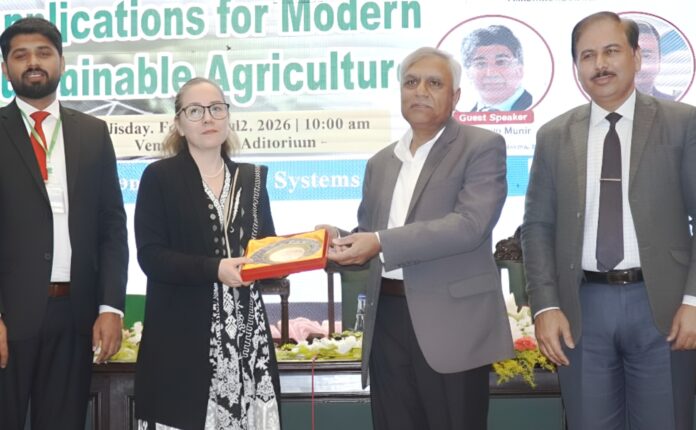A new staff-level loan agreement has been signed between Pakistan and the International Monetary Fund (IMF), under which the country will receive $7 billion over 37 months. Final approval for the loan will be issued by the IMF Executive Board.
In a statement issued by the IMF’s chief of mission in Pakistan, Nathan Porter: “The Pakistani authorities and the IMF team have reached a staff-level agreement on a comprehensive program endorsed by the federal and provincial governments that could be supported by a 37-month extension.” Fund Arrangement (EFF) in an amount equivalent to SDR 5,320 million (or approximately USD 7 billion at current exchange rates).”
It further said that the agreement is subject to approval by the Executive Board of the International Monetary Fund and timely confirmation of necessary financial guarantees from Pakistan’s development and bilateral partners.
According to the IMF statement, the program aims to build on the hard-won macroeconomic stability achieved over the past year by stepping up efforts to strengthen public finances, contain inflation, restore external buffers and remove economic distortions to support private-sector-led growth.
The authorities’ policy objectives include sustainable public finances through gradual fiscal consolidation based on reforms to broaden the tax base and eliminate exemptions, while increasing resources for essential development and social spending. In this regard, the authorities plan to raise tax revenues through measures of 1.5% of GDP in FY25 and 3% of GDP over the course of the program.
Tax on retail sales, exports, agricultural income
“The recently approved FY25 budget targets an underlying primary government surplus of 1 percent of GDP (2 percent overall). Revenue collection will be supported by simpler and fairer direct and indirect taxation, including net income from retail, exports and agricultural sectors to be properly integrated into the tax system. At the same time, the FY25 budget provides additional resources to expand social protection by increasing the generosity and coverage of spending on BISP, education and health,” the statement said.
Policy goals further include a more equitable balance of fiscal efforts between the federal and provincial governments, which have agreed to equalize spending activities in accordance with the 18th Amendment through the signing of the National Fiscal Compact, which transfers to provincial governments higher spending on education, health care, social protection and investment in regional public infrastructures that enable better provision of public services.
“At the same time, provinces will take steps to increase their own tax collection efforts, including service sales tax and agricultural income tax. With regard to agricultural income tax, all provinces are committed to fully harmonizing their agricultural income tax regimes through legislative changes.” with the federal personal and corporate income tax regime and this will take effect from January 1, 2025,” the statement said.







